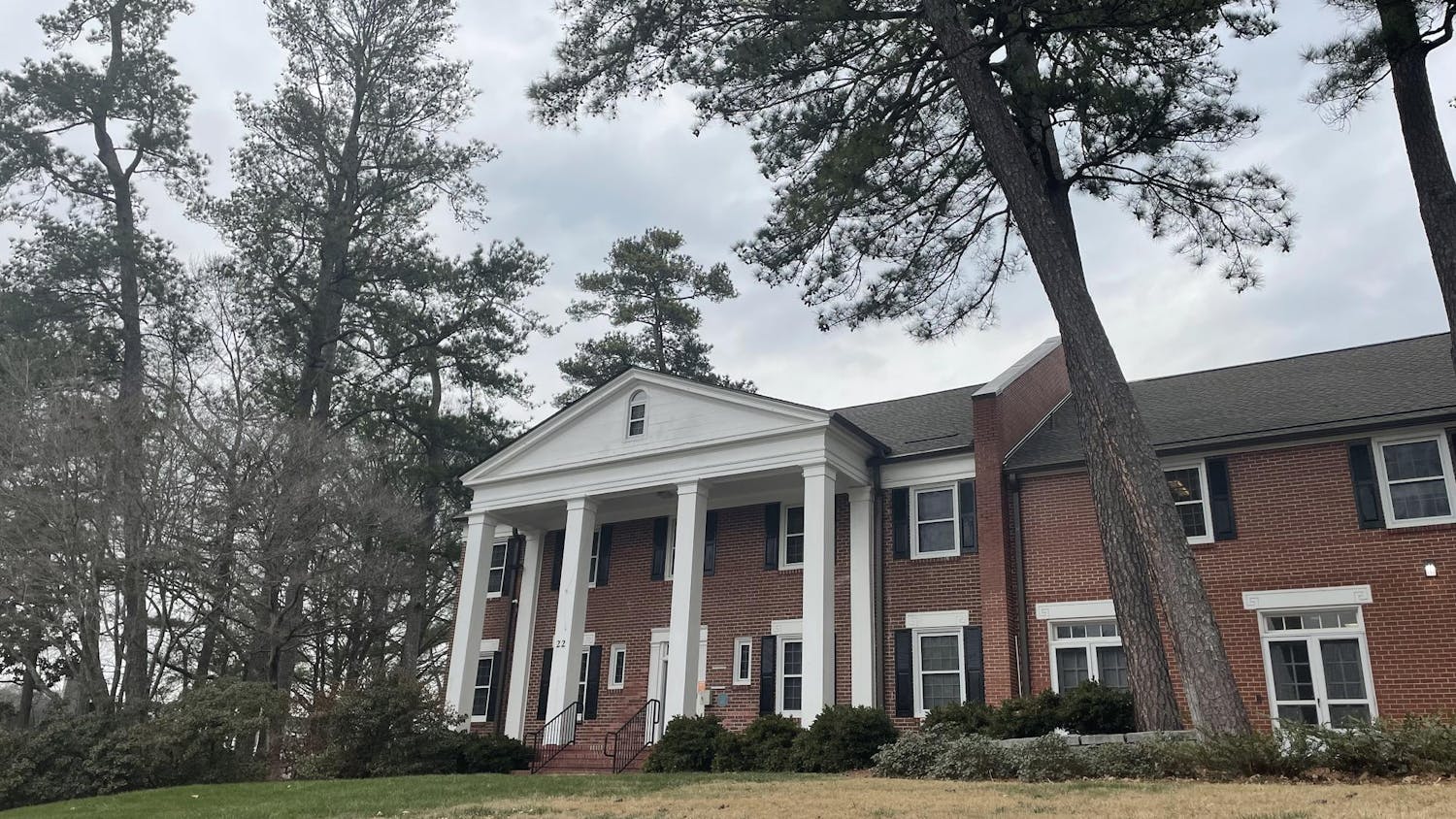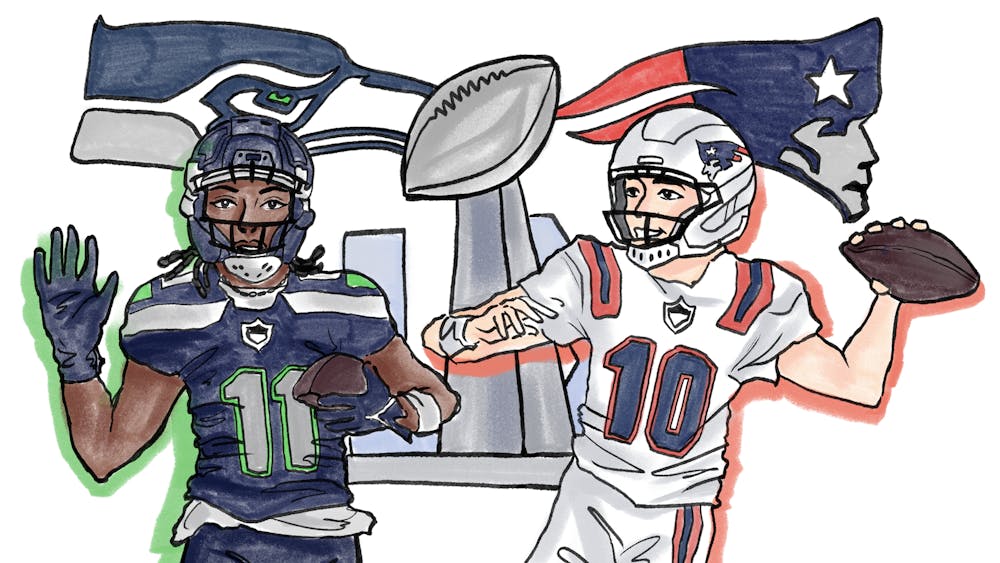
Content warning: This article contains references to sexual assault.
In June 2022, the U.S. celebrated the 50th anniversary of Title IX’s legacy and empowerment of women in education, athletics, the workforce and beyond in order to establish an equitable society.
At our first home conference game in the 2022 soccer season, we as members of the Emory University women’s soccer team had the privilege of wearing shirts that read “50 Years of Title IX.” Recognizing this historical context, I felt proud to be a part of the celebration of this anniversary and fortunate to have the leadership of an all-female coaching staff who all formerly competed at soccer’s highest levels. On that day, I reflected on their coming-of-age experiences as student-athletes with this law in place, imagining how it impacted their personal and professional experiences. I thought about the misogynistic culture they must have endured as they climbed the ranks and how they fared in a profession that is still predominantly male-led.
The celebration reminded me of the genesis of Title IX, its long history and the arduous fight endured by so many to get to where we are today. While we were standing in the team huddle wearing our Title IX shirts, our coach said, “It is a privilege to be here right now.” I left that match experiencing a myriad of emotions: grateful, humbled and motivated by my own journey as a female athlete.
I was raised in a family where the culture of sports and competition was a present and very positive part of life. Through my struggles with debilitating shyness growing up, sports became my voice and the driver of my emergence as a strong and confident woman. Sports helped me quickly understand the power and inherent positives of being a passionate and committed athlete. I learned that hard work matters — it can define and empower. The inner confidence I developed as a female athlete carried over into other aspects of my life.
I am fortunate to have a very close relationship with my younger brother, who now plays professional soccer in Italy. Soccer was a true constant in our lives growing up. However, my brother’s invitations for me to partake in his training sessions were often met with criticism, resistance and rejection from his teammates, introducing me to the inherent sexism in sports. Boys on the pitch dismissed me simply because I am a girl. My brother was always aware of his teammates’ blatant disregard for me as an equal player, and he never failed to intervene and call them out. Instead of letting them shame me, he pushed me ahead and supported my development when his peers were less than welcoming of a girl joining their competitive training.
My true passion is to play competitive soccer and gender is never a factor, but those early interactions forced me to develop an awareness that stayed with me as I continued to face challenges as a competitive female soccer player. I went on to have similar experiences when I played in an adult men’s league alongside my father and attended predominantly boy’s soccer camps. My goal is always to prove myself as a strong player and demonstrate that I deserved to be there, but disrespect and an underestimation of my abilities were always factors.
While these challenges never dissuaded me as a young athlete, the experiences made me cognizant of the gender bias in sports. Sadly, despite half a century of progress, women still struggle to attain equal professional status and opportunities. In my case, it is not about wage gap or equal television coverage; it is about high-level development opportunities that were only accessible to boys back then. For example, both academy clubs my brother played for back then, New York City FC and Metropolitan Oval Academy, did not have girls’ programs until recently. Another example is that Major League Soccer, the professional men’s league, was established in 1993, but Women’s Professional Soccer did not begin until 2009, followed by the founding of the National Women’s Soccer League in 2012.
Before shifting my focus to soccer in high school, I was also a competitive gymnast. I was always a huge fan who found inspiration in the tremendous talents of the Fab Five, the U.S. Olympic gymnastics team that won gold at the London 2012 Summer Olympics. They were so young, yet they were world class.
When the revelations emerged of sexual and emotional violence against so many young gymnasts for years at the hands of former U.S. Women’s National Gymnastics Team Doctor Larry Nassar, I was traumatized. How did America’s most celebrated female athletes live a nightmare of violence for so long? Learning that the system protected and enabled Nassar as he betrayed the trust of some of America’s most successful Olympic gymnasts was unbelievable and disheartening. What I came to understand is that despite its historical implications, Title IX is not enough to protect these young female athletes.
Despite the profound challenges women still face, thanks to the courage of female athletes like the Fab Five who have come forward to share their traumatic accounts, we have more protections in place than they did before. Women now have a platform of which to challenge the inequities, push for accountability and represent one another. They have also forced doors open through which I, as a collegiate athlete, have walked through. It is important to acknowledge how much Title IX has helped us get to a better environment for female athletes, but we must also know that we still have a long way to go to get to where we need to be. Let us hope we don’t have to wait another 50 years to see greater improvements. I am inspired and look forward to witnessing the historic opportunities Title IX continues to provide for the generations of female athletes to come. As Maya Angelou once said, “Each time a woman stands up for herself, without knowing it possibly, without claiming it, she stands up for all women.”









